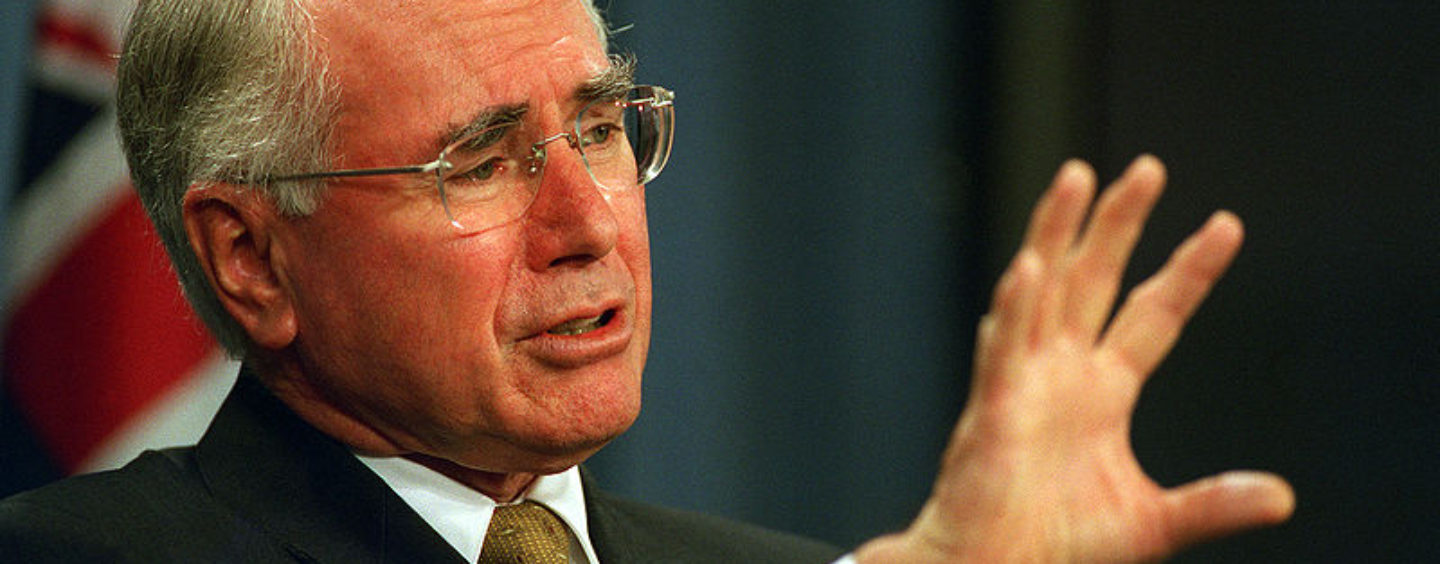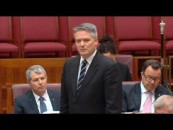Over the last decade we’ve had a succession of disappointing governments led by disappointing prime ministers delivering disappointing budgets. We now also have disunity in the Liberal Party and the rise of conservative voices outside it. It is unsurprising there is an outbreak of nostalgia for John Howard. Various people on the conservative side of politics are suggesting that, if Howard had still been leading the government benches, all would be OK.
They are wrong and the nostalgia is misplaced. Howard failed conservatives as well as the rest of us. But he doled out so much cash that few noticed.
Conservatives hate the idea of redesigning our economy in the name of climate change, but that’s exactly what Howard did. It was the Howard government that introduced the Renewable Energy Target in 2001, despite facing little political pressure to do so. At the time the RET was introduced, Australia had some of the world’s cheapest and most reliable energy. Today our energy system is more typical of a third-world country than a developed nation with more coal, gas and uranium than you could poke a stick at. When it comes to the death of Australian manufacturing, Howard has plenty of blood on his hands.
Living with the legacy of Howard failures
Our agriculture sector shouldn’t look back at the Howard years with great fondness either, despite Howard’s willingness to dole out drought relief, often keeping less efficient farmers in business and holding back gains in productivity. It was the Howard government that designed and introduced the Water Act, which gives precedence to environmental concerns over social and economic considerations in the Murray Darling and denies water for farmers based on the assumption that the millennium drought would never end. Sending fresh water to South Australia to evaporate, supposedly for the benefit of the environment, has now attained virtual religious status.
Howard also lost the culture wars. He did nothing about the ABC, SBS, section 18C of the Racial Discrimination Act or left-leaning universities, research institutions and state schools. All he did was dole out cash to schools so that none could ever claim to “lose”. The problem was, falling education standards through this period meant that students were clear losers.
Doling out cash was Howard’s approach to welfare too. His policy was cradle-to-the-grave welfare via the ballot box. He introduced the Baby Bonus, the child care rebate (a 50 per cent subsidy with no means test), Family Tax Benefit (which had nothing to do with paying tax), random payments to carers and a significant loosening of the age pension means test. His generosity with other people’s money gave rise to the middle-class welfare and age of entitlement that we see today.
The pointlessness of Workchoices
Spending cuts when Howard first came to office were soon overturned by a big spending attitude in every corner of government. Commonwealth government spending, adjusted to reflect current prices, rose from $11,255 to $14,239 per Australian over the Howard years, and taxes rose from 22 per cent of GDP to 24 per cent. The tax hike reflects not only the introduction of GST, but also an increase in income tax collections, despite the headline cuts in personal and company tax rates over the period.
Howard also botched industrial relations. In what amounts to the biggest waste of a Senate majority in history, the Workchoices legislation increased the regulatory complexity of Australian industrial relations, a feat many would not have thought possible, retaining one of the highest minimum wages in the world as well as Australia’s quasi‑judicial regulation of wages called “awards”. And despite Workchoices achieving so little, Howard still managed to lose the public relations battle.
Conservatives will remind us that Howard legislated to ensure that marriage was between a man and woman, that the territories were prevented from allowing assisted suicide, and that the war on drugs continued unabated. While these positions irk small ‘l’ liberals like me, what’s more irksome is that these piecemeal efforts are enough to earn unwavering adulation from conservatives, despite Howard’s huge failings in every other aspect of government.
As the march towards big government and the nanny state continues at a scary pace, it will require the help of conservatives to turn this around. But we will see no progress while they delude themselves that what we saw from Howard during his 11 years in power is what we need again.
David Leyonhjelm is a senator for the Liberal Democrats









